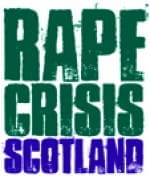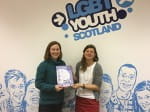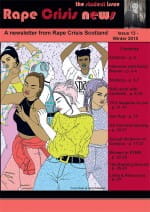News

Judicial review decision on legal aid provision

A key legal judgement has been issued today which improves the protection of complainers’ human rights within the Scottish justice system. Rape Crisis Scotland is calling on the Scottish Government to put processes in place to ensure that complainers are informed of their rights to oppose applications for their medical or other sensitive records.
12th February 2016
Funding announcement: Rape Crisis Scotland National Prevention Programme

Rape Crisis Scotland is delighted to announce that the national sexual violence prevention programme has been funded for a further three years through core funding from the Scottish Government’s Children, Young People and Families Early Intervention Fund.
Rape Crisis Scotland receives Silver LGBT Charter

Rape Crisis Scotland was delighted to receive the Silver LGBT Charter Mark from LGBT Youth Scotland.
This is in recognition of our efforts to ensure that LGBT issues are mainstreamed and an integral part of our service. We hope that this will allow LGBT people to feel that they can contact us with confidence, in the knowledge that they will be fully included, valued and supported (you can find out more about the LGBT Charter of Rights here).
Fergus McMillan (Chief Executive), LGBT Youth Scotland said: “LGBT Youth Scotland is delighted to award the Silver level LGBT Charter to Rape Crisis Scotland. The LGBT Charter process includes a set of rigorous standards designed to support services to undertake training, reflect on their policies and practices, and ensure that their service is truly LGBT-inclusive. Throughout this journey, Rape Crisis Scotland has consistently worked for meaningful change and good practice. Some strong examples including the following: several resources targeting LGBTI people who have experienced rape and sexual assault; their transgender inclusion policy; the launch of a LGBTI-badged service within the national helpline; and, involving staff, volunteers, and the board in discussions around LGBTI inclusion and improvements.”
Rape Crisis Scotland will continue to have discussions with LGBT Youth Scotland and to review our services. If you would like to get in touch with us about any aspect of this, we’d be very glad to hear from you – just email us at info@rapecrisisscotland.org.uk
Rape Crisis News 13 - Student issue

We're delighted to publish a new issue of Rape Crisis News which puts students in the spotlight, and includes several contributions from student journalists as well as an interview with NUS Scotland Women’s Officer Emily Beever.
Ann Moulds takes a look at stalking on campus and its links with sexual crime; we also caught up with GU FemSoc & gained an insight into feminist perspectives at Glasgow University. Emma Cooper writes about the barriers facing women studying and undertaking careers in STEM (Science Technology, Engineering & Maths) subjects, Sarah Young looks at sexual violence on campus, reviews ‘The Hunting Ground’ and interviews its director Kirby Dick, and you can also read about work undertaken by the local rape crisis centre in Aberdeen with students there.
Thanks so much as always to all our contributors (including Laura Callaghan for a fantastic cover image).
Hard copies of this issue will be available in the New Year - if you would like to receive one, want to get in touch with Rape Crisis Scotland or are interested in contributing to a future issue, please contact us at: info@rapecrisisscotland.org.uk.
Briefing on Proposed Amendment to the Criminal Justice (Scotland) Bill
Rape Crisis Scotland urges MSPs to support an amendment to the Criminal Justice (Scotland) Bill which would improve human rights protection for complainers of sexual offences. A copy of our briefing can be found here.
Latest posts
- Rape Crisis Scotland chief executive steps down after 24 years
- Our response to Lord’s Advocate’s letter
- We talk a lot about the rise of rape and sexual violence, let’s talk about how to stop it
- Statement: Supreme Court ruling on Daly v HM Advocate; Keir v HM Advocate
- An open letter: Women against the Far Right Scotland